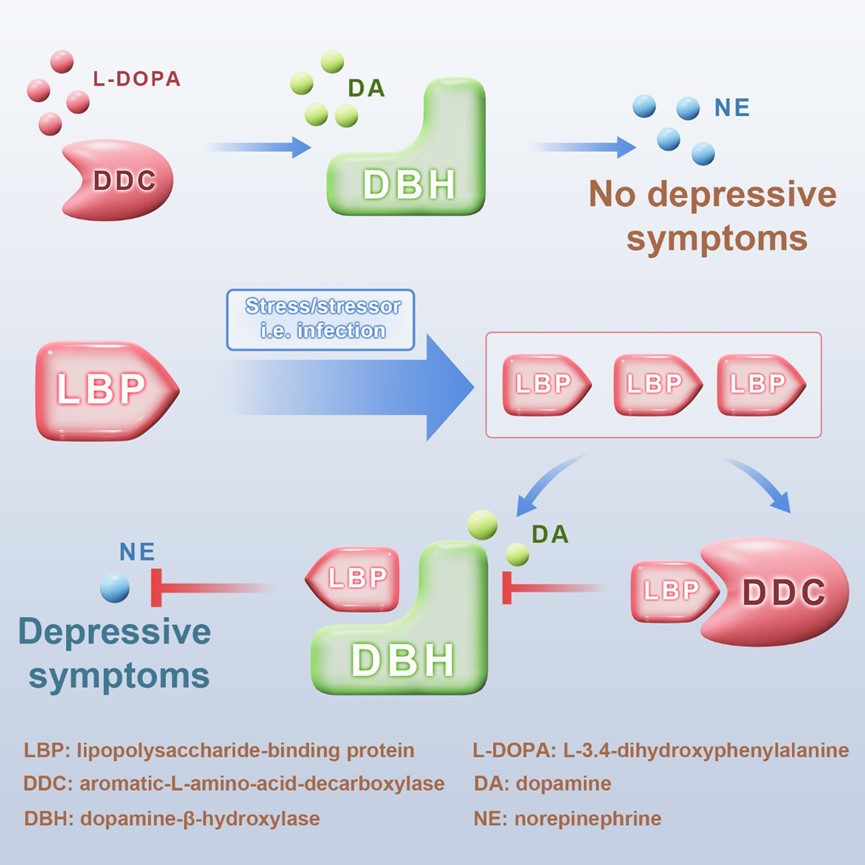Major depressive disorder (MDD) is the leading cause of disability worldwide and is expected to become the leading cause of the global disease burden by 2030. The "monoamine hypothesis of depression" suggests that monoamine deficiency is an important factor in the development of depression, therefore, the pharmacological mechanism of current first-line antidepressants is mainly to inhibit monoamine degradation or prevent monoamine reabsorption, but about 50% of individuals with depression are non-responsive to these drugs. Indeed, long-term repeated treatment (several weeks or months) is often required before clinical improvement, indicating delayed pharmacological effects of antidepressants. These clinical phenomena suggest that the possible underlying pathology of some depressed individuals lies in the blocked synthesis of monoamines, and therefore the use of drugs that block monoamine degradation or reabsorption is ineffective.
Recently, LAI Ren and his colleagues at Kunming Institute of Zoology, CAS in China published a research article entitled “Lipopolysaccharide-binding protein expression is increased by stress and inhibits monoamine synthesis to promote depressive symptoms” in Immunity (Article Link: https://doi.org/10.1016/j.immuni.2023.02.002). They revealed that chronic stress (e.g., social failure, chronic inflammation, etc.) significantly upregulated the expression of lipopolysaccharide/endotoxin binding protein (LBP). LBP was significantly upregulated in depressed individuals. This research also identified LBP as an endogenous inhibitor of aromatic-L-amino-acid-decarboxylase (DDC) and dopamine-β-hydroxylase (DBH), key enzymes of monoamine synthesis, inhibiting monoamine synthesis, which may have an important role in the development of depression. In mouse models of depression, promising antidepressant therapeutic effects were shown by intervening in LBP-DDC/DBH interactions. These results reveal that the inhibition of monoamine synthesis by LBP is the underlying cause of low monoamine levels in some depressed individuals, and that LBP is an important molecule in mediating immune to-brain bidirectional communication, providing new targets and directions for future treatment and diagnosis of depression.

Contact:
Dr. LAI Ren, Principal Investigator
Kunming Institute of Zoology, Chinese Academy of Sciences,
Kunming, Yunnan 650201, China
rlai@mail.kiz.ac.cn
